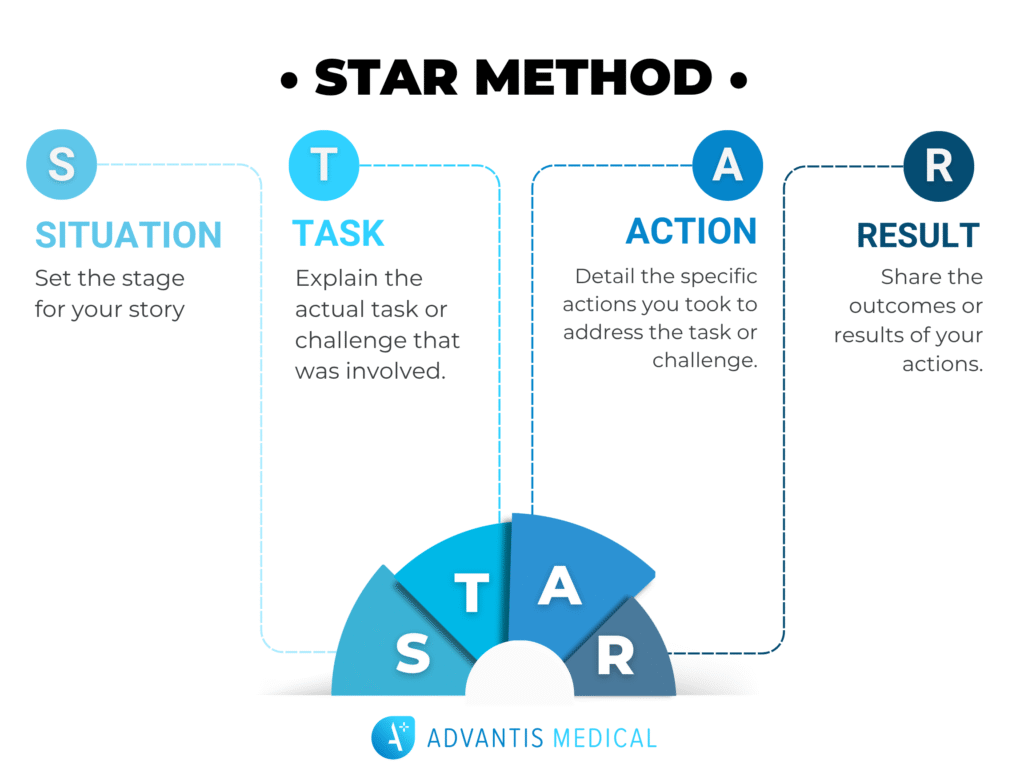You’ve landed the interview. Your license is active, your bags are half-packed, and now all that stands between you and a high-paying travel nurse job is a 30-minute phone call. Easy, right?
Not exactly. Travel nurse interviews in 2025 aren’t just about clinical skills, they’re about showing how you’ll adapt, communicate, and care when you’re the new face on a fast-moving floor. And no two hospitals interview in the same way.
So, how do you prepare without memorizing answers like you’re cramming for a board exam? Simple: You get real about what hiring managers are looking for and what actually helps you stand out.
What to Expect in 2025 Travel Nurse Interviews
The core of most nursing interviews hasn’t changed much over the years, but how you answer is everything. Facilities today aren’t just looking for experience. They want insight, emotional intelligence, and a calm presence under pressure.
A recent report by NSI Nursing Solutions found that the average hospital nurse turnover rate hit 16.4% in 2025, pushing many facilities to rely more heavily on travelers. In this high-churn environment, interviews are laser-focused on how fast you can integrate, manage stress, and deliver consistent care, even when you’re unfamiliar with the unit.
Expect questions that fall into six key categories:
- Team dynamics
- Patient care philosophy
- Adaptability under stress
- Time management
- Communication
- Personal motivation
With over 90% of healthcare facilities now conducting remote interviews for travel nurses and short-term roles, your ability to connect virtually matters just as much as your credentials.
How to Answer Nursing STAR Interview Questions That Stand Out
In 2025, behavioral interviews remain a cornerstone of the hiring process, especially in healthcare. These interviews focus on past experiences to predict future performance, offering a structured approach that benefits both employers and candidates.
Structured interviews, which include behavioral questions, have significantly higher predictive validity (coefficients ranging from 0.51 to 0.63) than unstructured interviews (around 0.20), according to SHRM.
“An easy method to help you navigate interview conversations with your company is what’s referred to as the STAR method, which stands for situation, task, action, and results.” — Matt Brownlee
Understanding the STAR Method for Travel Nurse Interview Questions
One of the most effective ways to answer behavioral interview questions is to use the STAR method. STAR is an acronym that helps you break down your experience into four clear, memorable components: STAR method:
- Situation: Set the stage for your story.
“The situation is simply what were the conditions and the situations going on with the story that you’re trying to tell.” — Matt Brownlee
- Task: Explain the actual task or challenge that was involved.
- Action: Detail the specific actions you took to address the task or challenge.
“This is when you get to really describe what actions you took. What was your role in solving the issue?”
- Result: Share the outcomes or results of your actions.
“You have to finish the swing and really describe the results of all the efforts and behaviors that you put forward.” — Matt Brownlee
You don’t need to be a natural storyteller; just follow a structure that hiring managers already expect. For nurses, this might mean describing a time you calmed a panicked patient, resolved a difficult family interaction, or adapted mid-shift when short-staffed.

Examples of Nursing STAR Interview Questions
Example 1: During a particularly busy shift in a critical care unit, we had a patient with rapidly deteriorating respiratory function (Situation). I was tasked with monitoring the patient’s status and coordinating with respiratory therapists (Task). I closely observed vital signs, communicated changes promptly to the team, and advocated for early intervention (Action). The patient’s respiratory status stabilized within hours, reducing their ICU stay by two days and improving bed availability for other patients (Result).
Example 2: At a new hospital, I noticed frequent medication errors during shift changes (Situation). I was asked to investigate and improve the handoff process (Task). I developed a standardized checklist and led two brief training sessions for the staff (Action). Within the next quarter, the unit saw a 30% drop in medication-related incidents during shift transitions (Result).
How to Practice Nursing STAR Interview Questions Naturally
- Reflect on your past experiences: Choose stories that showcase skills, teamwork, or growth.
- Write down STAR stories: Outline 5–6 you can adapt based on the question.
- Practice aloud: Speaking naturally helps reduce nerves and eliminate filler words.
- Be specific and quantify results: Numbers (like “reduced errors by 30%”) help prove your value.
- Stay honest and positive: Even challenging stories should show resilience and learning.
“Take a breath and think through: what was the situation, what was my task, what actions did I take, and what results came as a result?” — Matt Brownlee
Most Common Nursing STAR Interview Questions
Team Dynamics
- Q: Tell me about a conflict with a team member and how you handled it.
- Q: When was a time you were proud of your unit?
Adaptability
- Q: What did you do when you didn’t know the answer to something important?
- Q: Share a time you prevented a potential patient issue before it escalated.
Time Management
- Q: How do you manage a fast-paced floor with competing demands?
- Q: Describe a time when your patient load felt overwhelming.
Communication
- Q: Describe a time you miscommunicated. What did you learn?
- Q: How do you adjust your communication when others rely on your expertise?
Motivation & Values
- Q: What’s the hardest part of nursing for you? How do you handle it?
- Q: Describe a time you stepped up to solve a problem no one else tackled.
Smart Prep for Nurses STAR Interview Questions in 2025
- Know the facility: Research unit size, specialties, and recent news.
- Ask thoughtful questions: e.g., “How do travelers typically integrate with your permanent team?”
- Test your tech: For video interviews, use wired headphones and look at the camera.
- Stay flexible: Have 5–6 STAR stories ready to plug and play.
- Practice camera presence: Sit up straight, check lighting, and maintain eye contact via the lens.
Final Thought: Interviews Are Conversations, Not Auditions
A good interview isn’t about perfection. It’s about connections. You’re evaluating the facility just as much as they’re evaluating you.
Share real stories. Ask real questions. Look for the kind of team you want to join.
A Travel Nurse Agency That Truly Cares
We take great pride in supporting travel nurses with more than just top travel nursing jobs—we’re building trusted, long-term partnerships that make your journey smoother, more rewarding, and stress-free. With over 700 5-star reviews and dozens of real nurse testimonials sharing their experiences, we’ve earned our reputation as the #1 travel nurse agency.
Our Advantis Gold Standard ensures you receive personalized support, exclusive travel job opportunities, and a level of care designed to put you first. Whether you want one-on-one guidance from a Pro Recruiter or prefer to explore travel jobs on your own, we’re here to make it easy. Start your next adventure today—explore high-paying travel nurse jobs and discover what’s possible!
FAQs: Answering Nursing STAR Interview Questions
What is the STAR method, and why is it useful for nursing interviews?
The STAR method—Situation, Task, Action, Result—is a structured way to answer behavioral nursing interview questions. It helps travel nurses give clear, relevant examples that demonstrate problem-solving, teamwork, and clinical impact.
What are the most common travel nurse interview questions in 2025?
Expect travel nurse interview questions about team dynamics, time management, adaptability, communication, and patient care. These typically include behavioral scenarios where the STAR method can be used to structure your answers.
How do I answer STAR interview questions if I don’t have measurable results?
Quantifiable outcomes are helpful but not required. For nursing STAR interview questions, focus on what changed, what you learned, or how your actions made a difference—even if it’s qualitative or based on feedback.
Can I reuse the same STAR story for different interview questions?
Yes. One well-crafted STAR story can often address multiple travel nurse interview questions—like teamwork, conflict resolution, or patient safety—by adjusting the emphasis.
How do I prepare for STAR interview questions as a travel nurse?
Start by writing down 5–6 real examples using the STAR format. Practice them aloud, and tailor each to highlight different competencies. This ensures you’re ready for the most common nursing STAR interview questions.
How long should my STAR interview answers be?
Keep your answers between 1–2 minutes. That’s long enough to explain the context and impact, but short enough to stay engaging during a travel nurse interview.
What’s the best way to practice nursing STAR interview questions without sounding scripted?
Speak your STAR stories out loud, not just on paper. Practice being conversational and honest—hiring managers prefer authentic answers over rehearsed ones.









